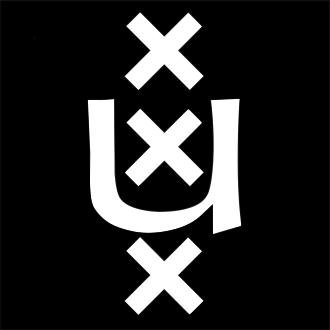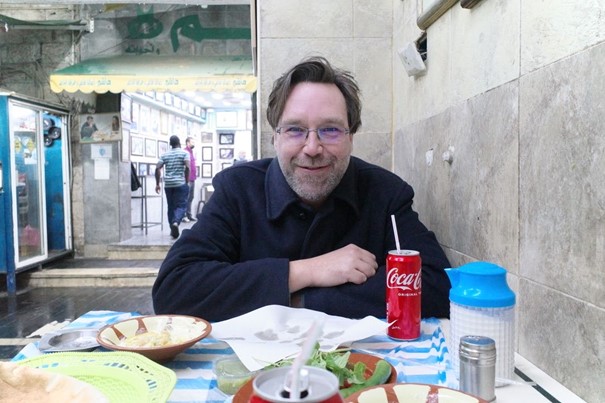Afgelopen week ontvingen we het verdrietige nieuws dat Ivan Kisjes, research engineer bij het CREATE Lab, geheel onverwachts is overleden. Ivan was sinds 2004 verbonden aan onze faculteit, eerst als student en daarna als medewerker van de dienst Informatiemanagement bij het CREATE Lab in de Humanities Labs. Zijn technische ondersteuning van talloze onderzoekers en studenten bij hun schreden op het pad van de digitale geesteswetenschappen werd alom gewaardeerd en zal node worden gemist.
Lees het In memoriam op de website van de Faculteit Geesteswetenschappen van de UvA.
See English below.
English:
Last week, we received the sad news that Ivan Kisjes, research engineer at the CREATE Lab, has passed away unexpectedly. Ivan had been associated with our faculty since 2004, first as a student and then as an employee of the Information Management department at the CREATE Lab in the Humanities Labs. His technical support for countless researchers and students as they embarked on their journey into the digital humanities was widely appreciated and will be sorely missed.
Ivan studied archaeology and also trained himself in digital methods. Early on, in 2010, he was involved in the set-up of the 4D Research Lab. This gave him special expertise, which led to him being employed in October 2011 to support archaeologists in processing data from fieldwork. Ivan participated in various excavations for many years, such as in Satricum near Rome. He built databases and developed special expertise in geographic information systems, which can be used to collect, map and analyse historical data. He also experimented with drones for archaeological research at an early stage, for instance in Acquarossa, Italy. When he started working at the CREATE Lab in 2014, he broadened his field of work and collaborated on various research projects by researchers, PhD students and junior researchers in the fields of archaeology, film studies, history, linguistics and internet studies.
In doing so, Ivan demonstrated a remarkable ability to translate the possibilities and limitations of technology into a form that is understandable to humanities scholars. He is described as someone who always contributed creative ideas, who was not a big fan of words like “no” or “that’s not possible”, and who was always able to explain what was happening technically and why, with humour and in understandable language. His great commitment and the quality of his input soon led him not only to support but also to participate in conferences and workshops and
to become involved as a co-author in publications and other research outputs. He also helped many researchers and students getting started with digital tools and methods.
Ivan was a very agreeable, intrinsically good person, with a calm presence and a great sense of humour. He was a beacon of calm in the hectic rush of urgent deadlines and the stress that often accompanies academic work. Many people indicate that his presence and the calm he radiated contributed greatly to a pleasant working environment.
Last year, Ivan could be found every Wednesday in the second semester in the workshop space of the Humanities Labs at Bushuis, supporting the students of the Master’s programme in Cultural Data and AI with their research projects. In this role, working with researchers to solve data problems, he was completely in his element. This week, a request came in for his support for this year’s group. There were also plans for collaboration on a new NWO project, and Ivan was searching for all sources about cats in the historical data of the Amsterdam Time Machine. Unfortunately, we will now have to continue without Ivan and will miss him dearly. He lives on in our work and our thoughts.
Julia Noordegraaf
Translated with DeepL.com (free version)

